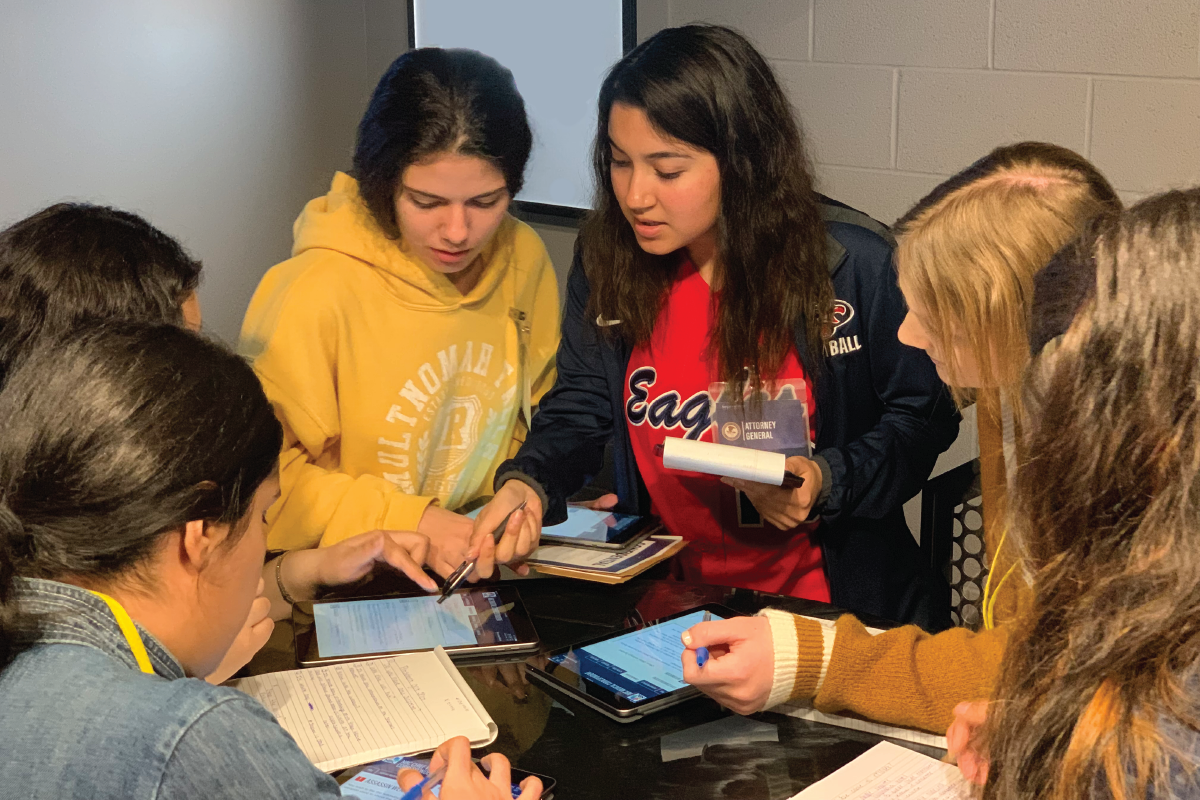
Five Game Design Skills You’ll Build as a Teen Playtester or Co-Designer
The teens who playtest and co-design with us help us refine the games we create with and for teens and sharpen skills vital to careers in game design while doing so.
Game design
Behind the games we know and love are teams of dedicated individuals committed to creating play experiences that transform and connect us. At iThrive Games, we embrace the same spirit of collaboration in the wellness games we envision, test, and co-design with and for teens.
Our paid co-design and playtesting sessions invite teens to apply their wisdom and genius to the development of games that engage and support them and their peers meaningfully. In our shared engineering of impactful and interactive experiences, teens, often gamers themselves, build skills foundational to game design. Here are five ways the knowledge and familiarity teens acquire from co-designing and playtesting support their pursuit of careers in those fields:
- Playtesting and co-design strengthen analytical skills. Having an analytical frame of mind supports game designers in poking, prying, and evaluating their way through problems and to new solutions and ideas. When teens playtest or co-design with us, they nurture their analytical skills as they assess play experiences and note pain points, opportunities for improvement, and ideas for expansion.
- Co-designers and playtesters deepen their understanding of core game design components, like scripting and concept art, and game development themes, like agility and iteration. By the end of a co-design or playtesting session with iThrive, teens who've participated are exposed to the many cogs involved in the creative process, building familiarity with the language used to describe its parts and the activities it takes to get to launch.
- Great playtesters and co-designers are great communicators. Core to the work of a game designer is communicating and coordinating with artists, programmers, and other stakeholders. Providing clear feedback to team members, technical and non-technical, is vital to supporting their work toward a compelling end product. Teens who co-design and playtest games at iThrive are prompted to practice effective communication when evaluating play experiences and share critique that fosters actionable insights.
- Playtesting and co-designing sharpen creativity and conceptual thinking. Creativity powers innovation in game design and beyond. Playtesters who offer feedback on games they get to exclusively preview are adding their genius to the well of creativity that makes our play experiences memorable and meaningful to young people. Joining in the creative collaboration, teens who work with us often conceptualize new ideas and share them with our team, spurring add-ons that enrich the playful experiences iThrive creates.
- To co-design or playtest is to be adaptable. The task of co-designing and playtesting insists on an openness to new experiences, practices, and techniques. This openness is common to game designers who often and actively seek out new ways of doing things and embed their learnings in the play experiences they create.
Teens who playtest and co-design with iThrive have remarked that the experience "allowed me to meet new people who were also interested in the same things I was" and "add my ideas to a project that will someday become a reality." Invite the teens you know to join in on the game design process and take part in the development of our new, exciting collaborations by joining THE HUB!


